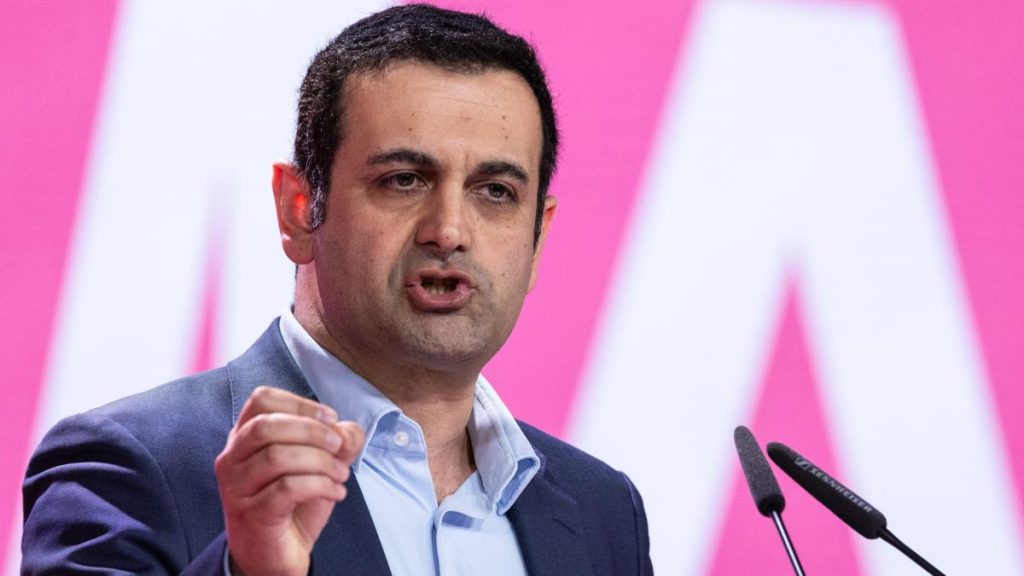The FDP’s Generalsekretär, Bijan Djir-Sarai, emphasized the party’s differences with coalition partners SPD and Greens during the FDP’s federal party conference in Berlin. Djir-Sarai highlighted the FDP’s distinct understanding of the role of taxpayer money, stating that it is not simply a means for redistribution. He stressed the importance of rewarding work and effort, reducing bureaucracy, easing the burden on citizens and businesses, strengthening work incentives, and improving investment conditions as key priorities for the party. Djir-Sarai also mentioned the need for Germany to brace itself for significant changes in order to regain economic strength.
During the conference, Djir-Sarai pointed out the FDP’s discontent within the current Ampel coalition, stating that it is neither a conference of an opposition party nor a government party content with the status quo. The party’s emphasis on specific points for Germany’s economic advancement was made clear through the approval of a leading motion for an economic turnaround by the Federal Executive Committee. Djir-Sarai mentioned that the coalition would now need to address these demands for economic strengthening.
Furthermore, FDP’s deputy chairman, Johannes Vogel, called for a joint legislative proposal from the coalition for an economic turnaround before the summer break. He referred to the current state of the country as an “Agenda Moment,” comparing it to the reform package initiated by the previous red-green government under Gerhard Schröder. Vogel indicated that the government would need to surprise all citizens with a significant initiative. Djir-Sarai also underscored the importance of preparing for substantial changes in Germany’s economic landscape.
In his appeals to coalition partners, Wolfgang Kubicki urged the SPD and Greens to engage in discussions regarding the FDP’s concept for an economic turnaround. He highlighted the urgency of the situation in Germany, emphasizing that the current state of affairs cannot continue. Djir-Sarai echoed this sentiment, stating that the country must brace for significant transformations. The FDP’s position on the utilization of taxpayer money sets them apart from their coalition partners and represents a fundamental difference in their understanding of governance.
Overall, the FDP’s focus on rewarding work, reducing bureaucracy, alleviating burdens on citizens and businesses, strengthening work incentives, and improving investment conditions demonstrates their commitment to catalyzing economic growth in Germany. The party’s discontent within the Ampel coalition was palpable during the conference, with Djir-Sarai making it clear that the FDP stands for substantial change rather than maintaining the status quo. With calls for a joint legislative proposal for an economic turnaround, the FDP is positioning itself as a proactive force pushing for transformative reforms in Germany’s economic landscape.















